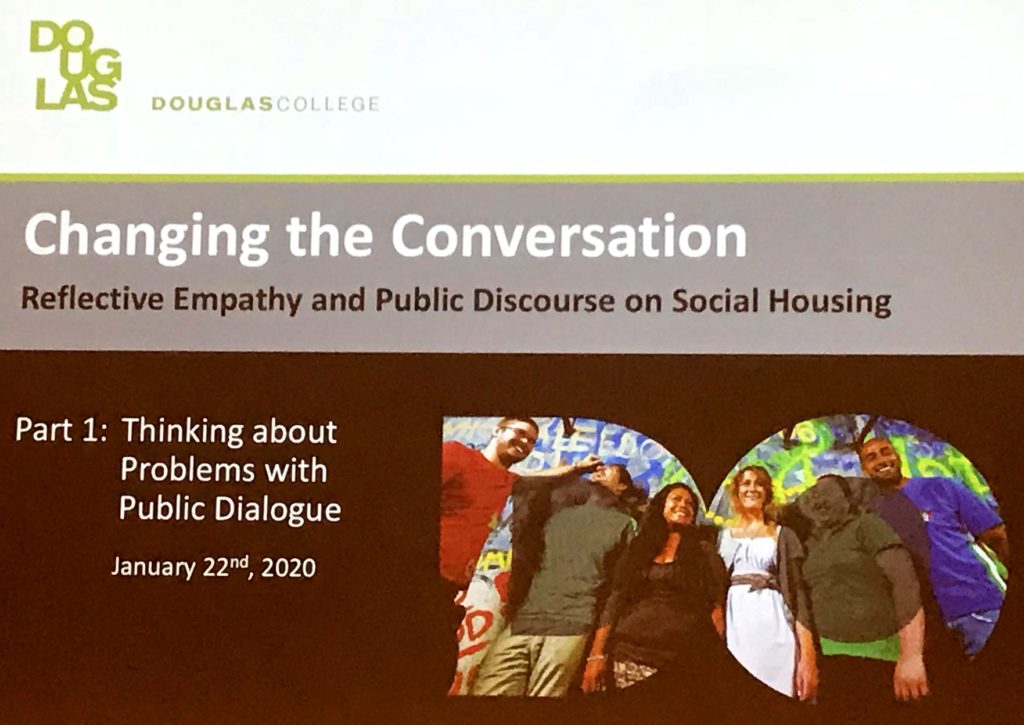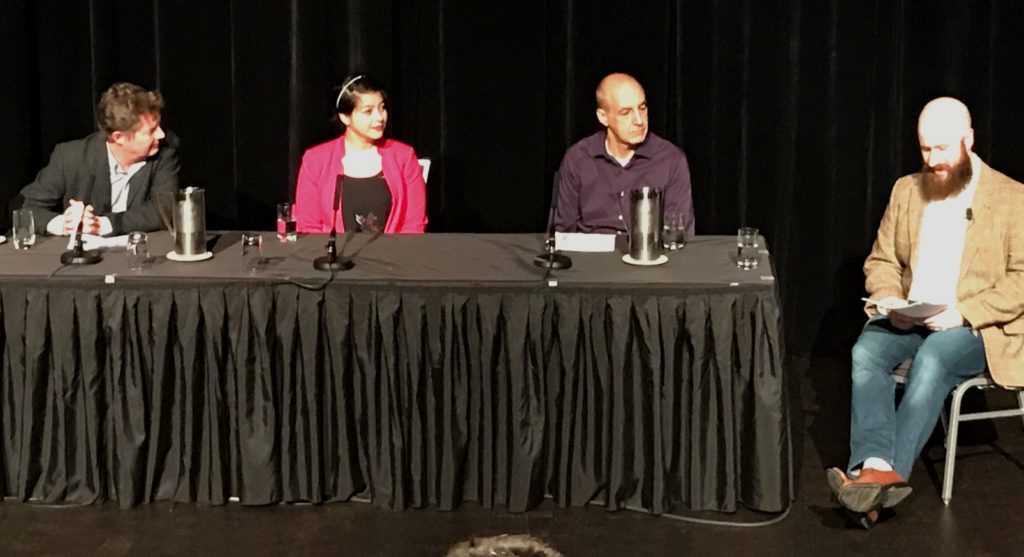OK, so maybe I already missed the mark on my soft promise of weekly updates on my council-related community activities, but let’s call them almost-weekly, and if we can keep ahead of fortnightly (although I love the term), and we can call this a success. It is going to depend on how many things I have going on, and how much time I have to write about them. Whish will result in this strange curve, because eventually I get to busy to write about them at all. And how much time I spend trying to use MSPaint to draw curves of phenomenon in my life:
 Since my last of these community updates, we ran into snowpocalypse or snowmageddon or whatever, so a few events were cancelled. Most notably, I made it to the Queensborough Residents’ Association meeting just as the power outage caused a cancellation, and the New West Collective (a peer-to-peer support and networking group for local small businesses) wisely chose to delay their quarterly-or-so gathering until proper spring weather arrives.
Since my last of these community updates, we ran into snowpocalypse or snowmageddon or whatever, so a few events were cancelled. Most notably, I made it to the Queensborough Residents’ Association meeting just as the power outage caused a cancellation, and the New West Collective (a peer-to-peer support and networking group for local small businesses) wisely chose to delay their quarterly-or-so gathering until proper spring weather arrives.
Many may not know I am a member of the board of the Lower Mainland Local Government Association, which is an area association representing 33 local governments (municipalities and regional districts) from Hope to Vancouver to Pemberton. We had an executive meeting last week which was spent mostly on organizing our AGM and convention in Whistler. It looks like a great program is shaping up, and I look forward to reporting out on it in May.
We held the last meeting of the Intelligent City Advisory Committee last Friday. This committee operated for about a decade, and provided some valuable guidance to Council and staff on the Intelligent New West initiative. As Council re-organized the committee structures in 2019, this was one whose role was re-evaluated, as INW is now operational, the City has a Strategic Plan for INW and there are staff responsible for all three “pillars” of INW. The “council advisory” role under INW will now be part of the Economic Development and Advisory Committee’s mandate, but there are aspect of the INW program that will also fall under Public Realm, Public Engagement / Inclusion, and the Electrical Utility Commission. There were a few members of that Committee not happy with this direction, and Council will be reviewing how to assure that the INW Strategic Plan is measured and reported out. More importantly, the City needs to recognize that there is a real braintrust of people who understand the digital economy and how information technology is evolving regionally (and globally) as the Internet of things and 5G networks become our reality. New West has some unique advantages here, we need to be vigilant to make sure those opportunities are not lost.
Last week, the members of City Council and a few senior staff members attended a special training session as part of our ongoing Truth and Reconciliation work. We had Brad Marsden lead us in a workshop around improving our understanding of the history of Residential Schools and Colonization, and its impact on Indigenous and Urban Indigenous Peoples. This was a powerful and emotionally draining session, and I understand New West is the first “Mayor and Council” to take part.
This week I was also fortunate to be able to attend the first in a three-part public conversation about changing the conversation around social housing. Led by the Douglas College philosophy department, this series seeks to explore how we can have better public conversations about social and supportive housing in our communities:

The first session put the conversation in context with an introduction by Elliot Rossiter (who wrote this great opinion in the Record recently), followed by short presentations that talked about the history of housing in New West and Canada, from the criminalization of “vagrancy” in the City’s early days through the complex social programs that virtually eliminated homelessness as we know it in the decades after WW2, to the neoliberal shift and commodification of shelter that made “unhousing” of people a common occurrence for the first time. This was followed by a panel (including Councillor Nakagawa) talking about how we can improve the community conversation about providing housing, and move past the stigmatization of people who are victims of the complex systemic and societal failure that is poverty in Canada.
Sorry, Phil, but the “neolibralism” count I got from the panel was 7. All on mark, from people who actually understand the meaning of the term.
There will be two more talks in this series that are more about exploring potential solutions than naming the problems. If you care about justice, about local governance, or even about how your neighbourhood can have better conversations about housing, you should come out! It’s free!
Finally, in the last week I had a Canada Games Pool Task Force meeting, an Electrical Commission meeting, and a less formal meeting with one of the guiding lights in the New Westminster Environmental Partners, to talk about how they view our current recycling situation, and some great initiatives they are hoping to lead around raising the profile of the Brunette River as an ecological asset in New West.